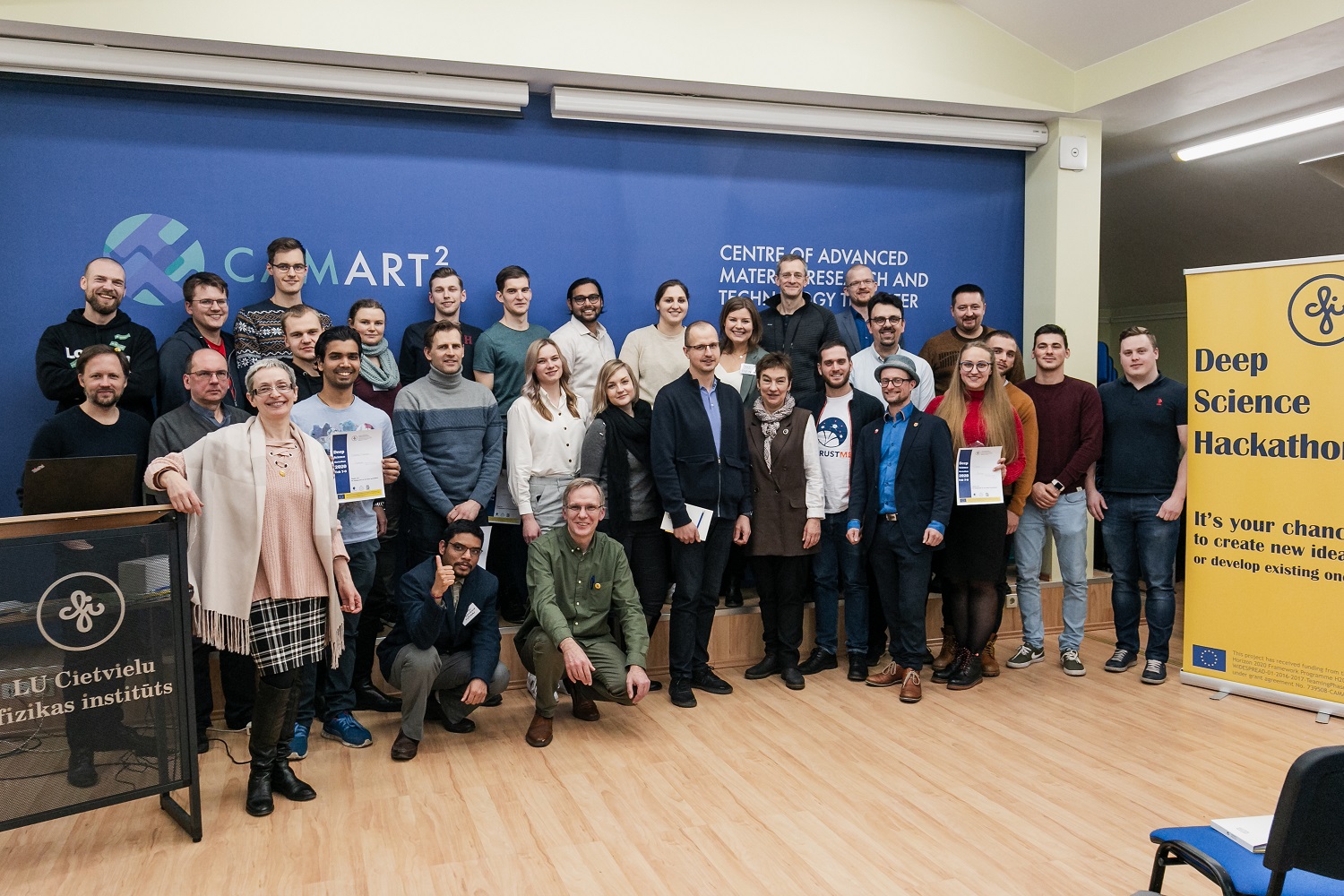
We use cookies to provide great user experience. By continuing on this site you accept use of the cookies.

We use cookies to provide great user experience. By continuing on this site you accept use of the cookies.

On February 7-9 Latvian Deep Science Hackathon 2020 took place. Participants of interdisciplinary teams developed ideas and presented them to the jury, scientists and potential investors. Event was organised at Materize host organisation University of Latvia’s Institute of Solid State Physics (ISSP UL).
Within 48 hours, students and professionals worked together to develop new high-tech ideas based on smart materials. In total, 9 ideas were submitted to the Deep Science Hackathon, five of which were successfully completed by the end of the event. Teams came up with ideas, such as a sheep wool filter for water purification, an application that helps to get out of a building or a ferry in case of emergency, a GPS animal-strap that works using heat of animals body. Electric Eel, in turn, came up with the idea of an autonomous robot that disinfects water supply systems.
The ISSP UL team, which is organizing hackathons for the fifth time, also participated with their idea to further develop Deep Science Hackathon format and its regional outreach.
Among mentors were Professor Anders Hallen of the KTH Royal Institute of Technology, innovation coach Molly Rogstadius and business expert Ervin Alic from RISE (Research Institutes of Sweden), Managing Director of MARKOPRENEUR GmbH Marko Mueller with extensive experience in design thinking training, Viesturs Sosārs from TechHub and Lauma Muizniece from Latvian Investment and Development Agency. Mentors engaged, consulted and supported the participants thru the process.
“As a mentor, my greatest satisfaction is to see the teams and the ideas evolve over this short period of time. As teams that didn’t really know what they wanted to accomplish on Friday, yet were very confident in presenting their ideas on Sunday night,” says Ernest Stall, a hackathon mentor and co-founder of TechChill.
In the end, the participants presented their results to the jury, which evaluated the teamwork and the achievements. The jury consisted of representatives from Commercialization Reactor, LIAA, BuildIt Accelerator, Change Ventures Venture Capital, TechHub, Latvian Space Industry Association, New Door Social Business Accelerator. The team Infinite Battery, which developed the idea of a body strap that works with body heat, was given the opportunity to participate in a program implemented by BuildIt Latvia in the spring of 2020. This team, like any other team in BuildIt Latvia program, is eligible for a PreSeed investment of up to € 50,000. In order to receive an investment, a new company will need to demonstrate that the team has the appropriate experience and motivation to grow. During the program, the team will have the opportunity to work with accelerator BuildIt experts and partners to enable the company to grow faster and become more attractive to next-level seed investors. Teams Fluffy Purification and Really Simple Learning got other prize – tickets to TechChill event.
This year, students and professionals from various Latvian universities and companies participated in the Latvian high-tech hackathon Deep Science Hackathon 2020 organized by the ISSP UL. Countries such as Latvia, Lithuania, India, Nepal and Denmark were represented.
Much appreciation also to the sponsors and supporters of the event that made it all well possible – H2020 funded project CAMART² at ISSP UL and sponsors – RISEBA, Hypnos beer and BIRZĪ.
“Our mission is to build an ecosystem that fosters innovation and collaboration, and to build new teams that are able to address the challenges they face. Latvia has excellent science and excellent high-tech companies; we just need to learn how to work together to bring it outside of Latvia,” says Andris Anspoks, Deputy Director of Innovation at the ISSP UL and general manager of Materize.
 8 photos
8 photos



